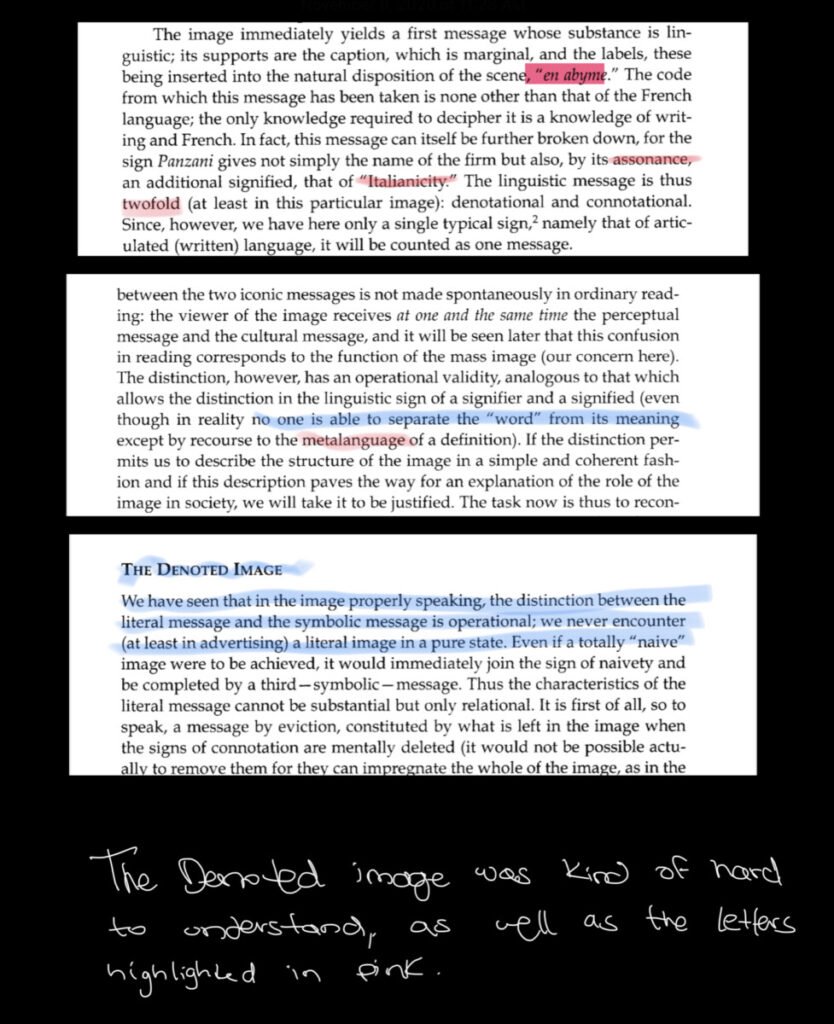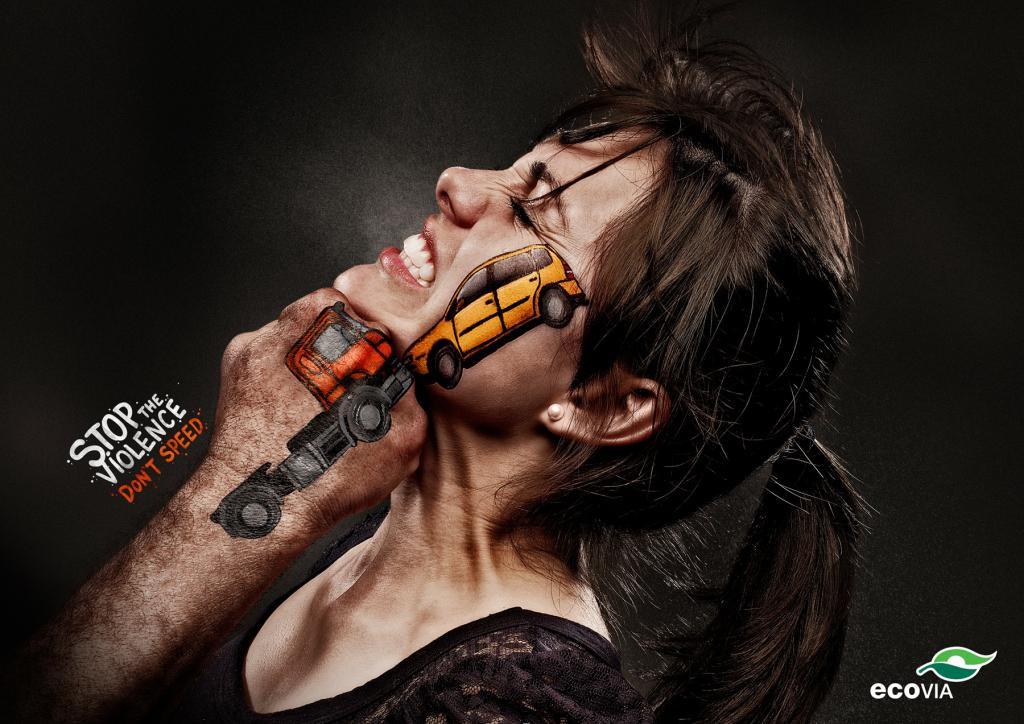Link to my presentation.
Author: Aracely Calle (Page 1 of 2)
Presentation, Text Only.


Ecovia “Stop the Violence” ad from 2012 was designed to raise awareness. It depicts the image of a woman, to her right appears to be a male’s forearm. The cars are crashing and the image portrays the male striking the woman’s chin.
“Stop the Violence, Drive Safe”, I really like this ad because it refers not only to driving safe, but to raise awareness to violence.

In 2013, Saudi Arabia launched a campaign against domestic violence. In a country where women are less valued than men, this advertising draws a lot of attention.

This advertising campaign made me realize our reality, social media has changed us in a way that we think that sharing a picture of a person in need will help them, when the truth is we are not doing anything to actually help them.
In Marshall McLuhan’s Understanding Media: The Extensions of Man, he talks about media, technology, and how it affects human beings.
The first chapter called The Medium is the Message talks about the division of things as means of control. He also talks about technology and how it changed our relationship with other humans and for that reason he splits these aspects into two: content and message. “The “content” of any medium is always another medium”.. “and the message of any medium or technology is the change… that it introduces into human affairs”, he says. As from my understanding, the content is the use we give to technology, and the message is its introduction into human nature.
McLuhan’s also talks about technology and media as “extensions of man” because “it is the way they are use what that determines their value”. Personally, I agree with this because Technology has changed the way we interact with each other, in a way another, it has improved the world we live in.
In chapter seven, he talks about The Nemesis of Creativity and the importance of artists in a world of technology and media. He states that “the serious artist is the only person able to encounter technology with impunity”. He couldn’t be more specifically when talking about it because most of the time, designers have to put away their bias in order to create something. In other words, we have to see the world with the eyes of a child.
I am going to cite two of my favorite quotes from the readings:
- “The artist picks up the message of cultural and technological challenge decades before its transforming impact occurs. He, then, builds models or Noah’s arks for facing the change that is at hand.”
- “The artist is the man in any field, scientific or humanistic, who grasps the implications of his actions and of new knowledge in his own time. He is the man of integral awareness.”
I think he is absolutely right because that is how media and technology works for designers. They always go hand in hand.
This weeks readings were very clear and informative. It helped me think about how to do a good design.
In Jan Tschichold’s reading about “The New Typography”, we can appreciate simplicity. He talks about the importance of not having a lot of ornaments, the beauty of a design appears when we start designing simple things; in that way we do not overwhelm the eyes of our audience.
Karl Gerstner, on the other hand, merged art with science and developed a new way to design. He talks about the importance of designing with contrast, for that reason, he developed “the morphological box of the typogram” which contains the parameters a good design has to follow. Gerstner also talks about the grids and its importance in design because it helps with the composition.
In Grid and Design Philosophy, Josef Müller gives a good example of how to use the grid and he also talks about Constructivist design. This type of design converts design laws into practical solutions. At the end of the text Müller says, “Every visual creative work is a manifestation of the character of the designer. it is a reflection of his knowledge, his ability, and his mentality”; this was one of my favorite parts of the readings.



Recent Comments